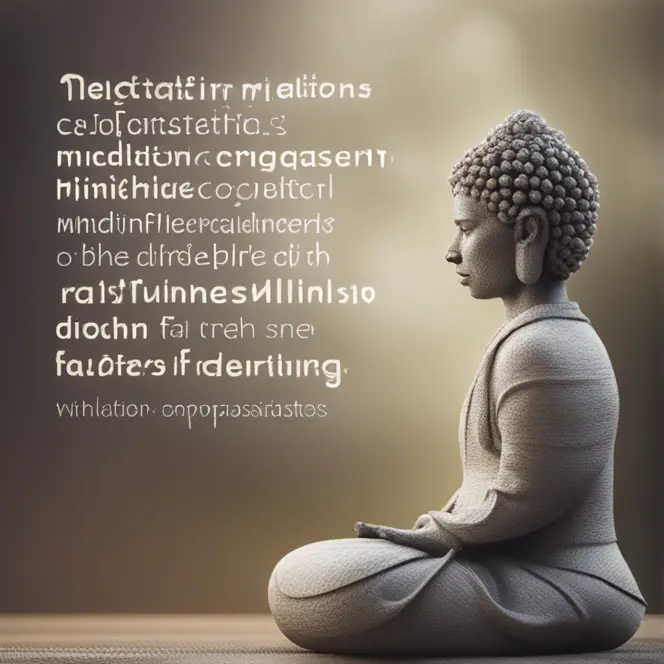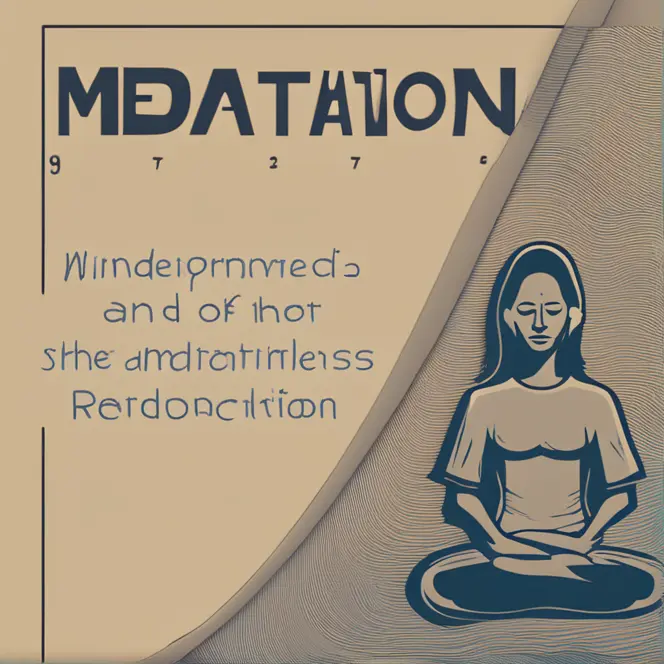
A Guide To Mental Clarity & Tranquility
Explore the differences between meditation and mindfulness, and how both practices can contribute to a deeper understanding of the self.
article by Hina Kurosawa
With the increasing interest in holistic well-being, terms like meditation and mindfulness frequently surface in conversations about mental health and personal development. While they may seem interchangeable, meditation and mindfulness, in fact, hold distinct positions within the landscape of self-reflection and mental training. This article aims to demystify these practices, highlighting their unique attributes and the ways in which they complement each other in the pursuit of mental clarity and tranquility.
Understanding Meditation
Meditation is an umbrella term that encompasses a variety of practices aimed at promoting a heightened state of awareness and focused attention. Traditionally rooted in religious and spiritual contexts, it has transcended these boundaries to become a secular tool for stress reduction and self-exploration. Meditation often involves setting aside a specific time to practice, which can include techniques such as controlled breathing, visualization, or repetition of mantras, with the goal of reaching a state of inner peace and relaxation.

Exploring Mindfulness
Mindfulness, by contrast, is the practice of maintaining a nonjudgmental state of complete awareness of one's thoughts, emotions, and experiences in the present moment. Unlike meditation, which is typically practiced for a set duration, mindfulness can be woven into the fabric of daily life, allowing practitioners to engage fully with the present task or experience. The art of mindfulness encourages a compassionate and patient reflection, offering practitioners a powerful tool to combat the distractions of modern life.

Synergy Between Meditation and Mindfulness
While meditation may serve as a structured exercise in mindfulness, it is important to understand that one can practice mindfulness outside of meditation. The stillness and focus cultivated in meditation can enhance one’s ability to remain mindful, whereas consistent mindfulness practice can lead to more profound meditation sessions. Together, both practices help in developing a more acute awareness of one’s mental patterns, contributing positively to emotional regulation and psychological well-being.

Starting with Meditation
For those new to these practices, it may help to approach meditation as the training ground for mindfulness. Starting with short meditation periods can provide a foundation for the greater presence of mind needed for mindfulness. Over time, as one becomes more adept at meditation, the transition to remaining mindful throughout the day can become more seamless. Ultimately, the practices are intertwined, with each reinforcing and extending the benefits of the other.
Meditation and Mindfulness in Daily Life
Imagine meditation as a dedicated rehearsal for a play, whereas mindfulness is the performance that happens in the midst of real life's unexpected moments. Meditation trains the mind to focus and be present, setting the stage for those same skills to be employed during interactions, tasks, and even challenging situations. The ability to stay aware and present during daily life, without formal meditation, is the true essence of mindfulness at work – an ongoing, real-time practice of awareness.
While meditation and mindfulness are distinct practices, they support and enrich each other, offering a dual approach to achieving mental clarity and emotional balance. Whether you’re seeking solace through meditation or aiming to enhance presence through mindfulness, these practices offer a gateway to a more attuned state of being, fostering tranquility in an increasingly turbulent world. Both paths lead to a common destination: a deeper, more conscious relationship with the self and the surrounding world.
Published: 12/4/2023
Modified: 12/4/2023
More predictions
Come back here soon to learn more about yourself and your future





